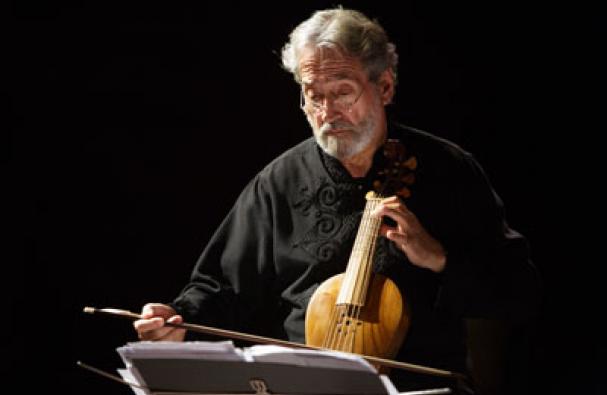We use our own and third-party cookies to improve your browsing experience and to offer you content and services of interest.
Continued browsing on your part shall imply full acceptance of our cookies policy.
Africa, America and Europa. Three continents involved in the traffic of slaves put forward their old musical traditions in homage to the victims of slave trading, one of the most shameful chapters in history.
So incisive and painful, as magnificent and revealing has the new musical experience of Jordi Savall been described by critics. As the great master of ancient music, together with his musical accomplices in The Routes of Slavery, the interpreter returns, as in previous occasions, with a thematic tour of the sounds of the past, specifically a set of music that goes from 1444 to 1888 connecting to the darkest moments of History, the traffic and exploitation of human beings who, directed from Europe, destroyed the lives of so many Africans forcibly transferred to the American continent to perform the hardest jobs. Looking for a musical reconciliation and betting on putting in value a multicultural inheritance, Savall has prepared a program of these kinds of music preserved from the ancient traditions of the very descendants of slaves. The music is performed by musicians from Brazil, Colombia, Mexico, Mali, Morocco and Madagascar, and will keep a dialogue with the Hispanic musical forms, inspired by the songs and dances of the slaves and the indigenous people, as well as those based on the African, mestizo or Indian traditions. And, together with the music, there will be texts on slavery with testimonies, chronicles and reflections of thinkers.
It is a great musical portrait of an era, a sound "photograph" that shows the attitudes toward Africans of the inhabitants of the so-called Western world, both in Europe and in Latin America or the United States, but also the qualities of music as a source of peace and consolation and as the last refuge of joy and hope. A great lesson in music and history signed by a passionate fan of musical fusion and intercultural dialogue that has been sponsored by Unesco.
This performance is presented together with the Torroella de Montgrí Festival where, on August 2nd, Jordi Savall and his musicians will perform the second part of the concert, with other musical pieces related to the same theme..
With the support of Departament de Cultura de la Generalitat de Catalunya.
This programme has been sponsored by Unesco.
Rhapsodist: Babou Cham
Musical interpretation: Canada Neema Bickersteth (singing) Mali Mamani Keita (singing), Ballaké Sissoko (kora), Mary Konçé, Tanti Kouyaté, Fanta Sayon Sissoko (choir) Mexico / Colombia Tembembe Ensamble Continuo: Ada Coronel (vihuela, wasá, dance and voice), Leopoldo Novoa (marimbula, marimba de chonta and tiple colombiano), Enrique Barona (vihuela, leona, jarana, horse jawbone, dance, voices), Ulises Martínez (violin, vihuela, leona and voice) Brasil Maria Juliana Linhares (soprano), Zé Luis Nascimento (percussion) La Capella Reial de Catalunya Arianna Savall (soprano), David Sagastume (countertenor), Lluís Vilamajó (tenor), Víctor Sordo (tenor), Petter Udland Johansen (tenor), Yannis François (baritone), Daniele Carnovich (bass guitar) Hespèrion XXI Pierre Hamon (flutes), Béatrice Delpierre (xeremia), Daniel Lassalle (sackbut), Jordi Savall (viol da gamba soprano), Xavier Puertas (double bass), Xavier Díaz-Latorre (theorbo, guitar, vihuela), Andrew Lawrence-King (Spanish baroque harp), Pedro Estevan (percussion)
Direction: Jordi Savall Selection of Mali music: Mohamed Diaby, Violet Diallo & 3MA Selection of México and Colombia music: Leopoldo Novoa Selection of Brasil music: Maria Juliana Linhares Selection of slaves’ songs and ancient gospel: Jordi Savall Historical and literary research: Sergi Grau, Manuel Forcano, Jordi Savall Texts translation: Gilbert Bofill i Ball Programme concept and final selection of music and text: Jordi Savall
